Cats play a crucial role in shaping the delicate balance of ecosystems worldwide. As both predators and prey, their presence is integral to maintaining healthy wildlife populations. However, the impact of domestic cats on native species is a complex issue that demands careful consideration. From predation to habitat disturbance, the influence of felines on conservation efforts cannot be ignored. Understanding the nuances of this relationship is paramount, as safeguarding vulnerable species hinges on striking the right balance between the presence of cats and the protection of their prey. The road ahead may be winding, but the destination – a harmonious coexistence – is worth the journey.
Key Points
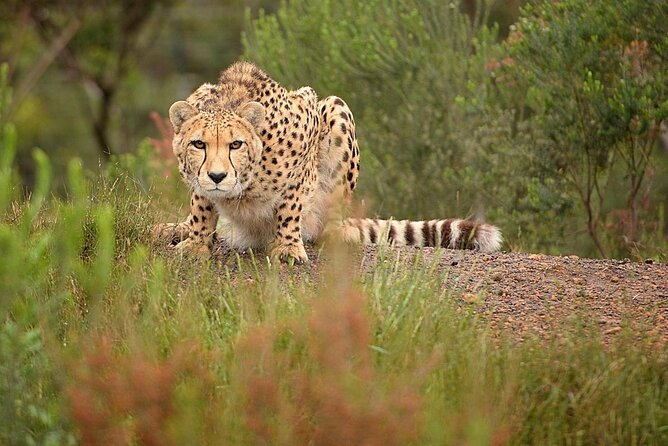
- Tenikwa Wildlife Rehabilitation & Awareness Centre focuses on conserving endangered cat species, including cheetahs and leopards, through rehabilitation and release programs.
- The behind-the-scenes tours at Tenikwa provide insights into the challenges of treating and caring for injured or orphaned big cats.
- Visitors can learn about the centre’s efforts to mitigate threats like habitat loss and poaching that impact local cat populations.
- The personalized conservation experiences at Tenikwa foster a deeper understanding of the complexities involved in preserving apex predators like cats.
- Tenikwa’s work aligns with broader conservation initiatives aimed at protecting vulnerable feline species and their ecosystems in the Western Cape region.
Conservation-Focused Tour
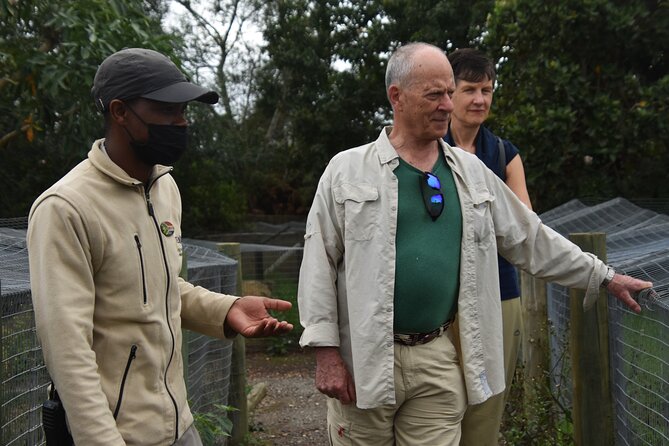
The Tenikwa conservation-focused tour provides visitors with a behind-the-scenes glimpse into the important work of wildlife rehabilitation and conservation efforts in the Western Cape region of South Africa.
Guests will enjoy personalized attention and the flexibility to move at their own pace as they learn from guided commentary and daily activities. They’ll spend time with staff to understand the challenges of conservation and get an overview of the facility’s wildlife rehabilitation programs.
Complementing the educational experience are included meals, transportation, and refreshments.
With neutral-colored, comfortable attire and a prohibition on touching animals, the tour offers an immersive yet responsible way to support Tenikwa’s mission of protecting South Africa’s vulnerable wildlife.
You can also read our reviews of more tours and experiences in Plettenberg Bay.
Personalized Experiences
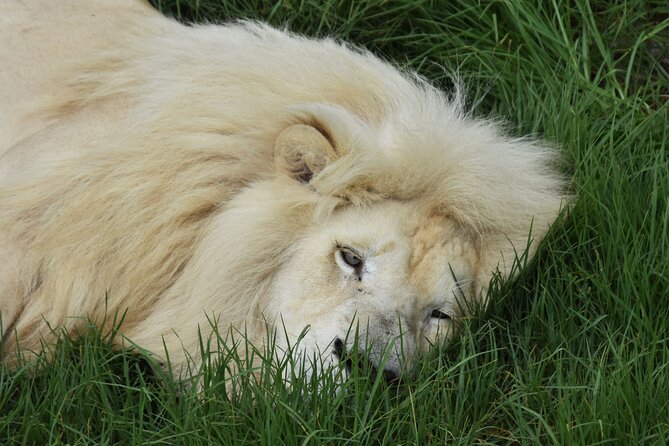
Seamlessly complementing the educational focus of the Tenikwa conservation tour, personalized experiences allow visitors to enjoy the center’s mission at their own pace.
Through guided commentary and daily activities, guests can dive deep into the intricacies of wildlife rehabilitation and conservation. The opportunity to spend time behind the scenes with staff provides unique insights into the challenges faced and the solutions developed.
This personalized approach fosters a stronger connection between the visitor and Tenikwa’s vital work. Whether moving through the facilities at a leisurely tempo or engaging in hands-on learning, each guest can tailor their experience to best align with their interests and passions.
Tenikwa’s personalized experiences offer an unparalleled gateway into the world of conservation.
Educational Guided Commentary
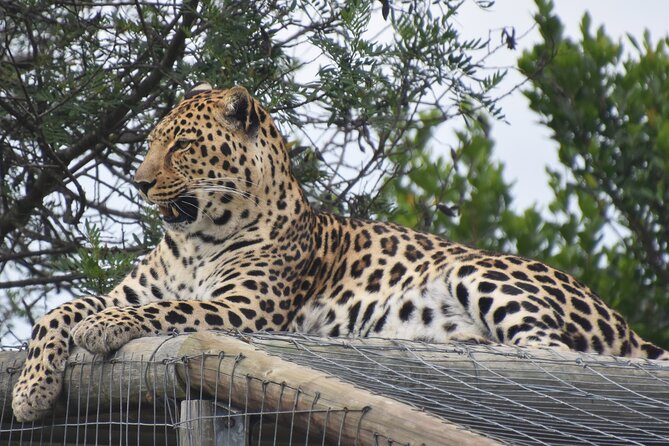
Guided commentary at Tenikwa Wildlife Rehabilitation & Awareness Centre provides visitors with in-depth education on conservation efforts and wildlife rehabilitation practices. Through expert narration, guests learn about the center’s mission, the challenges it faces, and the innovative solutions developed to protect vulnerable species. Staff guide participants behind the scenes, offering an insider’s perspective on the day-to-day operations and the individuals dedicated to this important work. Visitors gain a newfound appreciation for the complexities of wildlife conservation and the crucial role rehabilitation plays in sustaining healthy ecosystems.
| Conservation Challenges | Rehabilitation Innovations |
|---|---|
| Habitat Loss | Specialized Veterinary Care |
| Poaching | Rehabilitation Enclosures |
| Human-Wildlife Conflict | Release and Monitoring Programs |
| Climate Change | Community Engagement |
| Invasive Species | Research and Data Collection |
Behind-the-Scenes Insights
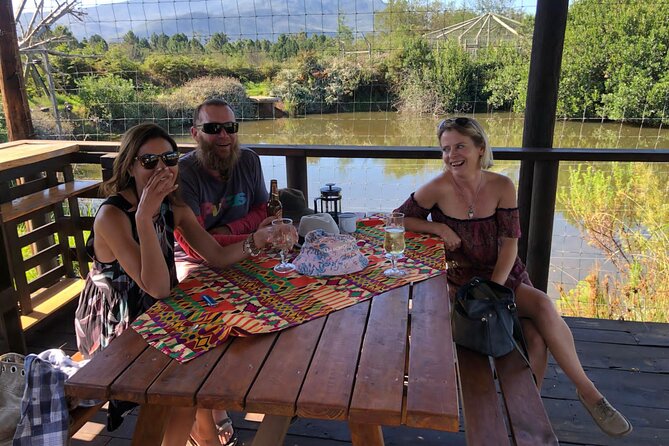
Visitors gain a behind-the-scenes look at Tenikwa’s dedicated staff as they work tirelessly to rehabilitate and reintegrate injured or orphaned wildlife back into their natural habitats.
The tour provides an in-depth understanding of the daily challenges and complexities involved in wildlife conservation. Guests will witness firsthand the intricate processes of treating and caring for the animals, from administering medical treatments to preparing specialized diets.
They’ll also learn about the center’s efforts to monitor and track released animals, ensuring their successful reintegration into the wild.
This exclusive access offers a profound appreciation for the selfless work of Tenikwa’s team and the crucial role they play in preserving South Africa’s precious natural heritage.
Rehabilitation Facility Overview
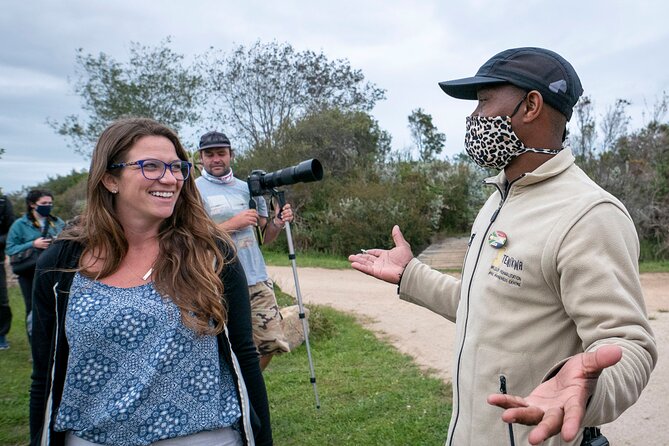
Tenikwa’s wildlife rehabilitation facility houses a wide range of injured or orphaned animals, catering to the specialized needs of each species through dedicated staff and customized care.
The facility offers comprehensive medical treatment, rehabilitation, and eventual release back into the wild.
Visitors can tour the various enclosures and learn about the unique challenges faced by different species, from big cats to birds of prey.
The knowledgeable staff explain the rehabilitation process and the importance of these efforts in supporting local wildlife populations.
Guests gain a deeper appreciation for the vital work being done to protect and conserve South Africa’s natural heritage through Tenikwa’s exemplary rehabilitation programs.
Inclusive Dining and Transportation
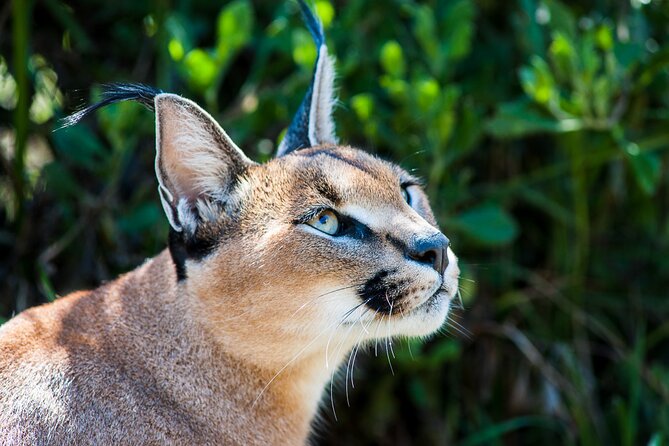
The tour package includes a variety of dining options, with breakfast, lunch, and refreshments provided throughout the day.
Complimentary transportation is also offered, ensuring a seamless and convenient experience for participants. Guests can enjoy bottled water, coffee, and tea as they travel to and from the Tenikwa Wildlife Rehabilitation & Awareness Centre.
The all-inclusive nature of the tour allows visitors to fully enjoy the conservation experience without having to worry about logistics.
This thoughtful approach ensures that participants can focus on learning about the important work being done at the facility and engaging with the staff and animals.
Meeting and Pickup Details
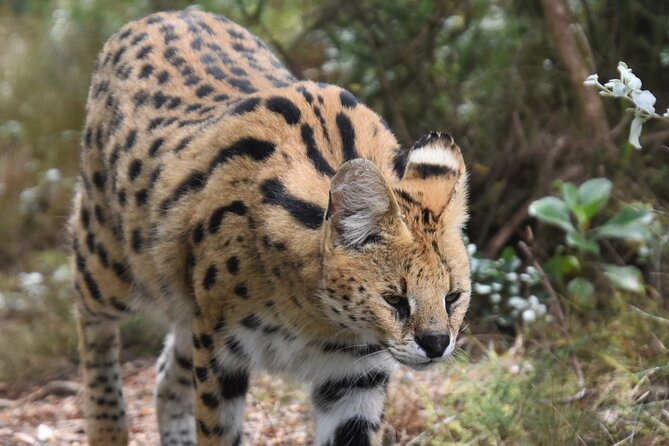
Conveniently, the tour commences at the Tenikwa Wildlife Rehabilitation & Awareness Centre in The Crags, Plettenberg Bay, where guests check in at the Reception before embarking on their conservation-focused experience.
The meeting point is easy to find, and you will be picked up from this location at the agreed upon time. Once the tour concludes, guests will be transported back to the same meeting point.
The organizers ensure a smooth start and end to the day, allowing participants to fully enjoy the activities without worrying about logistics.
With clear meeting instructions and reliable transportation, guests can focus on learning about conservation efforts and supporting the important work done at Tenikwa.
Participation Guidelines
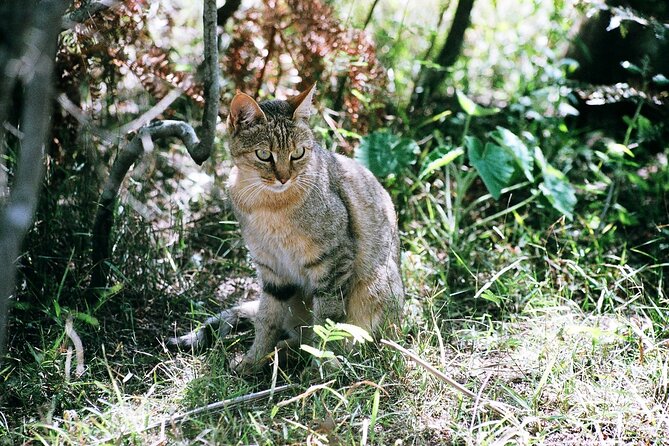
Participants can expect clear guidelines to ensure a safe and respectful experience at Tenikwa.
Touching animals isn’t allowed, as the well-being of the wildlife is the top priority. Infants must sit on laps, and children under 18 need to be accompanied by at least one parent, as the tour may not be suitable for younger children under 9 years old.
Most travelers can participate, but it’s important to follow the rules. The tour offers free cancellation up to 24 hours before the experience starts, and a lowest price guarantee, so guests can reserve now and pay later.
Frequently Asked Questions
Are There Opportunities to Adopt or Sponsor the Rescued Cats?
Unfortunately, the tour at Tenikwa Wildlife Rehabilitation & Awareness Centre does not offer opportunities to adopt or sponsor the rescued animals. The focus is on education and conservation efforts, rather than facilitating adoptions or sponsorships of the animals at the facility.
What Species of Cats Are Typically Cared for at the Facility?
The Tenikwa Wildlife Rehabilitation & Awareness Centre cares for a variety of feline species, including big cats like lions and leopards, as well as smaller wild cats such as caracals and servals. They focus on rescuing and rehabilitating these animals.
How Are the Cats Reintroduced to Their Natural Habitats?
The facility carefully monitors the cats’ progress, gradually reintroducing them to their natural habitats through a phased process. This involves expanding their enclosures, providing hunting opportunities, and tracking their adaptation to ensure a successful and sustainable return to the wild.
Are There Any Specific Programs for Local Community Engagement?
The tour offers opportunities for local community engagement through educational programs and interactions with the wildlife rehabilitation staff. Visitors can learn about conservation efforts and support the centre’s initiatives to involve the surrounding communities.
What Are the Long-Term Goals for the Conservation of the Cat Species?
The conservation program aims to protect cat species long-term through habitat preservation, anti-poaching efforts, and community engagement. It focuses on restoring populations, educating locals, and promoting sustainable eco-tourism to ensure the cats’ survival for generations.
The Sum Up
Cats play a vital role in conservation, both as predators and prey, maintaining the balance of wildlife populations.
While domestic cats can pose threats, conservation initiatives focus on responsible pet ownership and protecting vulnerable wild cat species.
Understanding the dual impact of cats is crucial for preserving healthy ecosystems.
A conservation-focused tour provides an opportunity to gain insights into this complex relationship and support the conservation efforts.
More Tour Reviews in Plettenberg Bay
Not for you? Here's more things to do in Plettenberg Bay we have recnetly reviewed
- 5 Best Guided Tours In Plettenberg Bay
- 2 Best Full-Day Tours In Plettenberg Bay
- 14 Day Volunteering in the Community of Kwano
- Skip the Line: Birds of Eden Admission Ticket
- 21 Best Tours In Plettenberg Bay
- Forest Walk With Picnic and Wildife Tour
- Ebike Tours
- Kwano Evening Tour – Local Nightlife
- 5-Day Private Garden Route Tour Package From Cape Town
- 4 Best 2 Hour Tours and Experiences in Plettenberg Bay
- Township Tours – Be a Local for a Day
- 5 Best Cruises And Boat Tours In Plettenberg Bay
